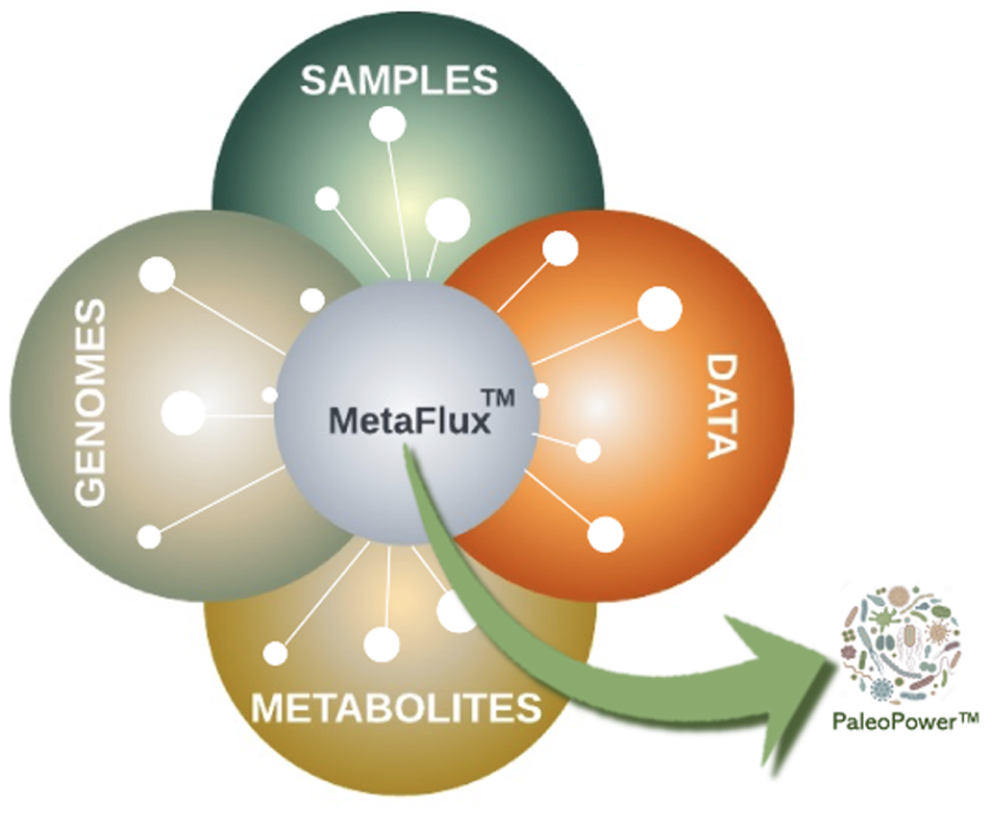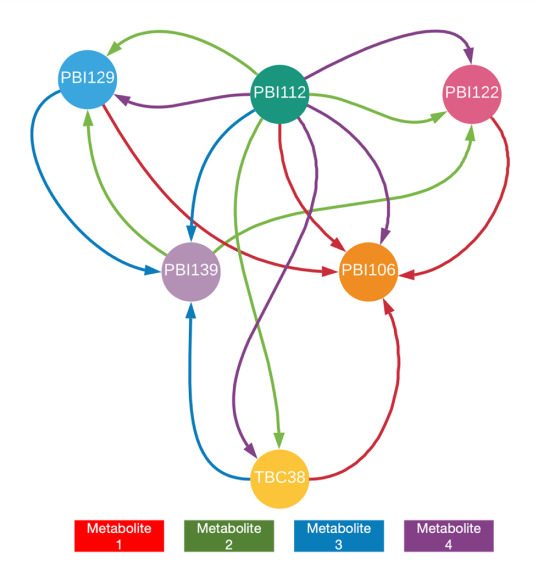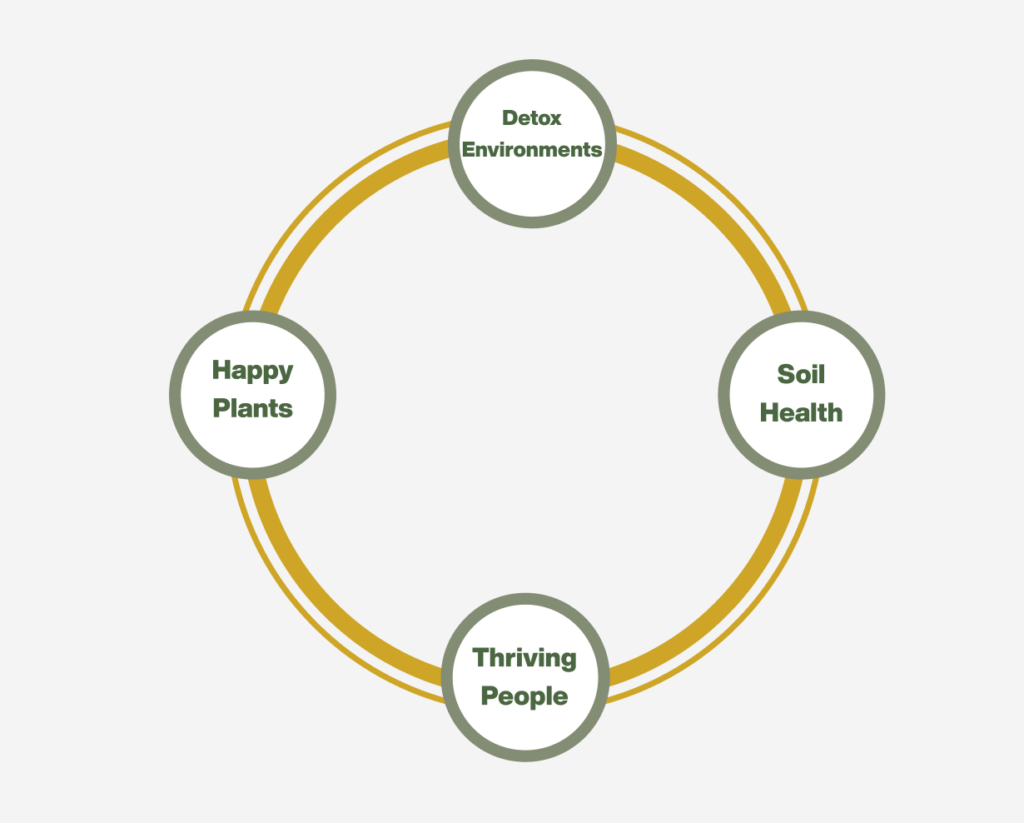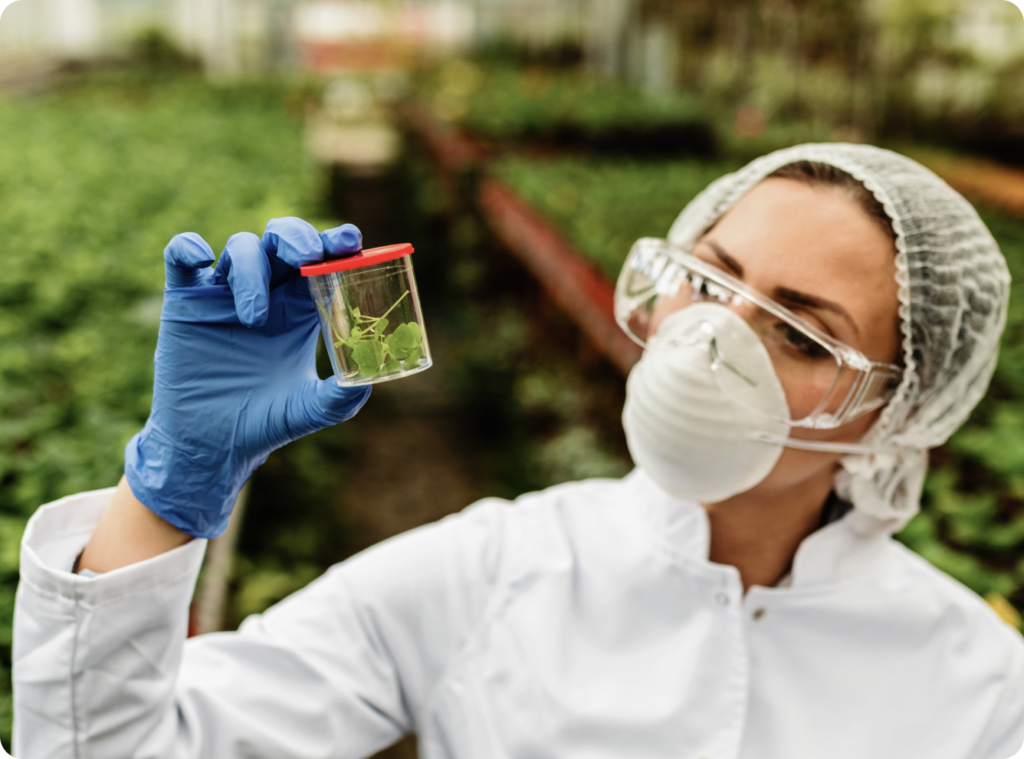Our Approach
Home / Approach

Science
Each of our soil and plant probiotics is made up of a group of beneficial bacteria called a “guild”. Our microbial “guilds” function as symbiotic self-sustaining communities that work together to contribute specific benefits to your plants and soil.
Each of our soil and plant probiotics is made up of a group of beneficial bacteria called a “guild”. Our microbial “guilds” function as symbiotic self-sustaining communities that work together to contribute specific benefits to your plants and soil.
We assemble our “guilds” of beneficial bacteria by first analyzing the unique genetic makeup of each microbe to identify the genes responsible for conferring a specific benefit to your soil or plants.
We then use our proprietary Metaflux™ metabolic modeling platform to match up microbes that confer the desired benefits to your soil and plants to assemble each “guild”.


The resulting microbial “guild” then works together as a symbiotic community to provide the desired beneficial functions for your soil and plants. Because our guilds are designed to survive as a community by cross feeding each other, the benefits they provide to your soil or plants continue to endure for a period of time after application.
Glyphosate Break Down - Why Does This Matter ?
brand names, including Roundup.
Safety
There has been significant controversy around the safety of glyphosate. Studies suggest glyphosate is linked to several types of cancer. In 2015, the World Health Organization identified glyphosate as “a probable human carcinogen”. Thousands of people around the world have filed lawsuits against Monsanto, the manufacturer of Roundup, claiming the product caused their cancer.
To date, Bayer, which acquired Monsanto, has set aside $11 Billion to settle the Roundup lawsuits. In 2021 Bayer announced that it would stop selling Roundup in certain markets by the end of 2023 citing risks to farm workers and consumers.
Glyphosate contamination has been found in many foods including strawberries, kale, spinach and foods containing corn, soybeans, oats and wheat. Studies suggest that glyphosate is also toxic to certain animals, bees, butterflies and aquatic life. The use of glyphosate is now banned or restricted in over 30 countries.

Impact on Soil Fertility
Glyphosate’s impact on soil fertility depends on a variety of factors, including the concentration and frequency of application, the type of soil, and the specific crops being grown.Some suggest glyphosate helps to maintain soil fertility by controlling weeds and reducing competition for nutrients and water. However, there is increasing scientific evidence that glyphosate negatively impacts soil fertility. A number of scientific studies have shown that glyphosate adversely impacts the soil microbiome by reducing the activity of beneficial microorganisms in the soil, which can affect soil health and nutrient cycling.
Reducing beneficial microbes in the soil can also increase the risks of plants becoming infected with bacterial and fungal pathogens.Repeated or excessive use of glyphosate can increase the level of residues in the soil and lead to the development of glyphosate-resistant weeds, which can further deplete soil nutrients and reduce crop yields over time

Persistence In Soil
There is disagreement about how rapidly residues from glyphosate -based herbicides degrade in soil. The rate of degradation varies depending on factors such as soil type, temperature, and moisture content. It also depends on the specific formulation as different products may contain different amounts of glyphosate, as well as other chemicals such as surfactants, that can affect how quickly it breaks down and persists in the environment.The US Environmental Protection Agency (EPA), suggests that the average half-life of glyphosate in Roundup is approximately 47 days in soil, but may be several months. However, a number of scientific studies suggest glyphosate persists much longer and that in certain environments may persist for as long as 22 years.
PaleoPower
Scientific studies have demonstrated that our product, PaleoPower, has the ability to reduce 80% of glyphosate residues in soil within 90 days of application and by over 90% within 180 days.
It is important for farmers and other users of glyphosate to carefully consider these factors and to use glyphosate-based herbicides in a way that maximizes their benefits while minimizing their potential negative effects.


